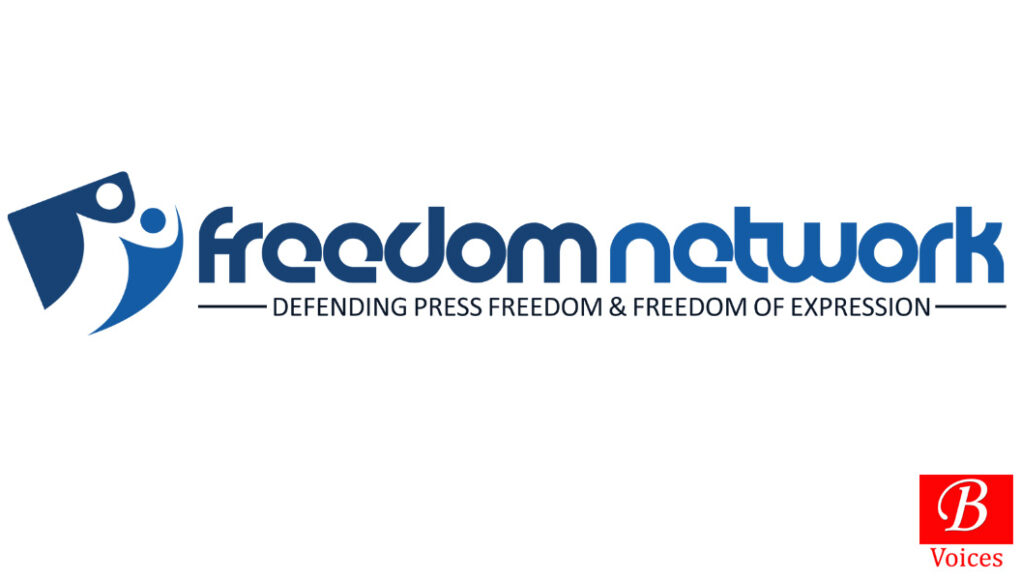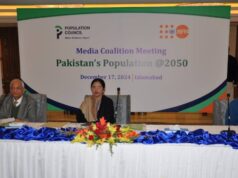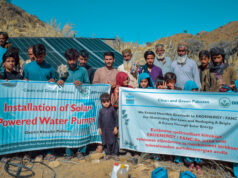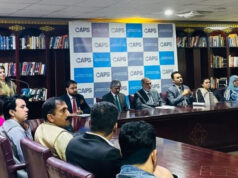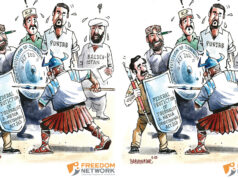Press Release
ISLAMABAD: Pakistan presents a case study of shrinking digital rights and closing spaces for dissent online on the occasion of International Internet Day that is marked globally, including Pakistan, on October 29, according to a new report issued here on its eve.
According to the report titled “Closing Spaces: Coercive Cyber Regulations Impede Online Journalism and Free Speech in Pakistan”, issued by Freedom Network, a Pakistani civil liberties advocacy and research group, Pakistan experienced in 2020 several setbacks in the enforcement of digital rights and freedom of expression and right to information online.
Read also: Facebook Pages Paid Advertisement Scam Exposed
Freedom Network’s annual State of Digital Rights in Pakistan Report 2020 identified a regression in the areas of internet policies and regulations and allowing dissent and freedom of expression, as well as a rise in censorship, hate speech, digital surveillance, and breach of privacy and disinformation and misinformation online.
“It is troubling to note that the accumulative effect of the slide in the enforcement of digital rights is contributing to a general closing of online spaces in Pakistan,” Iqbal Khattak, the Executive Director of Freedom Network said. “The biggest casualty is online free speech and online journalism, in particular, is being impeded in by coercive cyber regulations,” he added.
Internet policies and regulations:
The report said the media legal context of Pakistan during 2020 was characterized by an aggressive federal government seeking to extend and expand its authority to overregulate the media sector and to redefine the boundaries of free speech not just of media and information practitioners, including journalists and online citizens, but also of opposition political parties and civil society movements – and their leaders – aimed at constructing their struggle for human rights.
It said there was an increased reliance on the Prevention of Electronic Crimes Act (PECA) to encourage censorship. The cybercrime law was repeatedly invoked against journalists and opinion makers for exercising freedom of expression and social media activism.
The federal cabinet in the autumn of 2020 approved new rules to regulate online content even though an earlier version of it in the shape of the Citizens Protection (Against Online Harm) Rules, 2020, was halted after widespread opposition to it from civil society, media, and political parties.
In 2020 Pakistan performed poorly on global internet freedom rankings – it was ranked ‘Partly Free’ by Freedom House as it secured only 38 out of a maximum 100 points according to its Freedom of the World Report 2020.
The executive-controlled internet regulator Pakistan Telecommunication Authority used its unchecked powers to censor materials on the internet and in the summer of 2020 unleashed another controversy by requiring registration of Virtual Private Networks (VPNs) in Pakistan.
The authorities in 2020 ignored urgings by national and global digital rights groups to develop its artificial intelligence (AI) strategy and guidelines with a human rights framework at the core of its policy.
Freedom of expression and censorship online: Internet freedom declined during 2020 due to authorities’ increased blocking of political, social, and cultural websites and undeclared policy of connectivity restrictions and increased disinformation. Several journalists and rights activists faced inquiries, abductions, investigations, arrests, and criminal related to their online/social media activities and posts.
Hate speech prevalence online:
Hate speech against religious minorities on social media and their online harassment was prevalent in 2020. Religious minorities, security agencies, human rights, gender, politics, and development were identified as the main discussion themes online that elicited the most hostile reactions from detractors online.
The report said that online news media platforms in 2020 reported facing hate speech, hostility, and organized targeting for their content related to religion, religious minorities, and human rights and face threats, abuse, trolling, hacking, blocking, and charges of treason from various threat actors including individuals, political parties, religious groups, unknown organized groups, and even official sources.
Digital surveillance:
The report said Pakistan has acquired the services of an international company to help build a nationwide “web monitoring system” that employs Deep Packet Inspection to monitor communications and record traffic and call data on behalf of PTA.
It said that while women are frequently targeted in honor killings and social sanctions in the physical world, this violence is seeping into the online sphere as well with threats of the violence enabled through digital devices. In 2020, data indicated a significant majority of women journalists not only faced online violence that directly impacted their personal and professional lives. In 2020 dozens of women journalists came forward revealing increased vulnerability and technology-related violence against them from various sources, especially the ruling party workers and supporters.
Misinformation, disinformation, and fake news:
The report said that in 2020 concerns in Pakistan grew about misinformation, disinformation, and fake news as political polarization grew encouraged by the ruling party and the prime minister himself. Misinformation complaints spread principally through social media platforms.
Share your comments!


